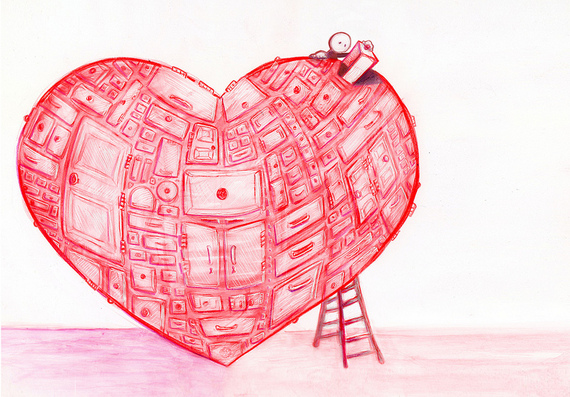People are looking everywhere for ways to feel valued and appreciated. We want to be surrounded by other people who are mindful of our needs in a way that says, "I hear you." We want to be in the presence of other people who joyfully give us the freedom to be authentic and walk in our truth. We want to feel honored by other human beings with acts of integrity and compassion. We want our creative expression to be celebrated and recognized by others, to be forgiven easily without judgment, and to have other people take responsibility for their own actions. To sum it up in one sentence, in our personal lives we say, "I want to be loved."
In business we don't call it love. Oh no, that wouldn't be politically correct. The word love may not go over well in the boardroom. Heaven forbid we use a word that might make people feel uncomfortable. Ironically, the very thing that makes people feel uncomfortable is the exact thing every human being in business is looking for from their leader and company. Rather, in business we call love "engagement". You see, when people feel loved they want to give love. In business, we call this exchange of love "discretionary energy" -- and this discretionary energy is evaporating from business faster than the speed of light.
Today people feel the void of love more than ever, and most businesses have yet to acknowledge the reality that the only way to have an engaged culture is to have leaders who show-up and live high-character values. Values that include: mindfulness, compassion, forgiveness, integrity and responsibility. In other words, having leaders who are able to show acts of love. It's only then that people will become fully engaged and the business can create a high-performing culture.
What gets in the way of leaders being able to show acts of love? Fear of becoming vulnerable.
Vulnerability is the magic ingredient to showing acts of love and receiving the love that others show. Not only is vulnerability the magic ingredient, it's the hardest thing for a business to attain because it requires not intellect but heart. Vulnerability is the willingness to do something without a guaranteed result, having the courage to be imperfect, having the ability to be kind to ourselves first, and believing that the things that make you most susceptible and weak to the world are what make you most beautiful. The key to joy, love, and happiness is vulnerability.
In business, vulnerability is overshadowed by fear and shame. As a means of survival and protection from fear and shame people have become experts in denial. We pretend things that are uncertain are, in fact, certain; we pretend we are what we're not; we put ourselves on a conquest to prefect our existence. All the while, at the core of our human nature, we want to be vulnerable and feel connected. We want to feel loved.
Together, vulnerability and living high-character values is the way forward in business -- it's the solution to employee engagement. Vulnerability is the only way people feel loved, and living high-character values is how love is shown. That said, vulnerability always follows character -- it will never happen the other way around. When leaders show up living high-character values, exhibiting acts of love, the culture begins to feel safe. When a culture feels safe people are willing to let their guard down, become vulnerable and give love right back to the business.
Gina Soleil, is a speaker and acclaimed author of Fuel Your Business: How to energize people, ignite action and drive profits. She blogs and speaks about how to create a business where people are energized, feel good and are happy. Visit Gina Soleil at ginasoleil.com and follow her on Twitter.
Photo credit: brookeduckart via Foter.com / CC BY-NC-ND

